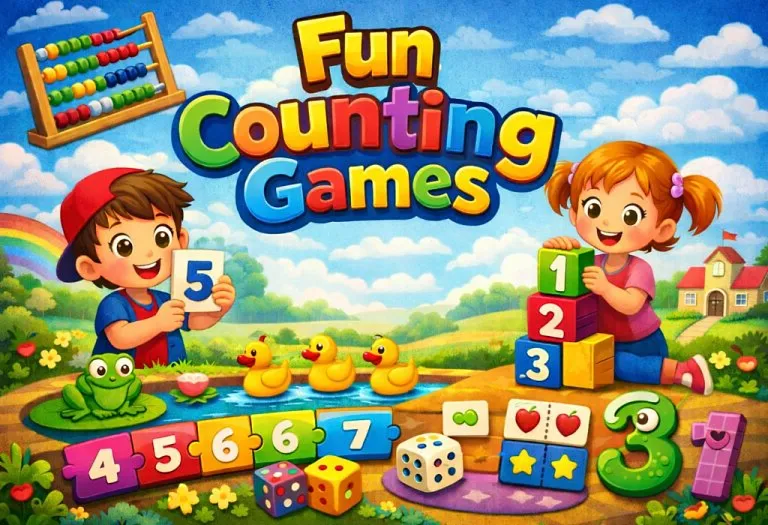Harmful Effects of Force-feeding Children
As parents we want our children to get optimum nutrition, and for that, it is required that they eat a proper and well-balanced meal. However, feeding food to children can be an arduous task, especially if your child resents or refuses to eat what you want him to eat. In such situations, parents often tend to force-feed their kids, but it may lead to harmful consequences. If you wish to learn more about why it is harmful to force-feed children, we suggest going through the following post for the same.
What Does Force-feeding Actually Mean?
Providing nutrition and nourishment to a child is what every parent wants to do, but sometimes they end up feeding their kids forcefully. The following points may constitute force-feeding:
- Deciding how much, when and what the child will eat
- Feeding enormous amounts of food to the child even if he resents it
- Comparing the child with other kids or blackmailing the child into eating food or into consuming a large serving of food
- Ignoring a child’s pleas of eating less or later
Why Do Usually Parents Force-feed Their Children?
As parents, we make sure that we undertake every task that ensures the proper upbringing of our kids, and feeding food and providing nutrition is one of them. Here are some reasons that explain why parents tend to force-feed their kids:
1. To Finish What Is Served
Most of us have this notion that if it is on the plate, it should eventually land in our tummies. But with kids, that is not the case because they would only eat the amount of food their stomachs permit.
2. When Introducing Solid Foods
This is a very common feeding mistake that parents make when they start feeding their babies for the first time. The aim is not to force the baby to eat the food that he despises, but to let the baby develop the taste and then letting him choose what he likes to eat.
3. Concern That the Child Is Not Eating Enough
Young children eat less but eat often. We as parents think that our child may not be eating or getting ample nutrition from small meals, thus overfeeding.
4. Spoon-feeding Older Children
Quite a few parents like to feed their children even when they are old enough to eat by themselves, because they think that they may not be able to feed themselves. This leads to overfeeding.
5. Not Understanding the Child’s Needs
As parents, we think that we are more aware of what our child needs, and the same holds true for food. Therefore, when the child refuses to eat, we often tend to force-feed thinking that the child does not understand his body’s requirements.
6. For Introducing New Foods
Parents often force their kids to eat when they introduce them to a new fruit, vegetable, or a food item. This thinking is supported by the idea that children need to be given the food continuously so they can get the hang of the taste.
7. Comparing With Other Children
If the child’s friend or cousin of the same age is eating more amounts of food, the parents might feel that they are not doing a good job with feeding their child, and they opt for force-feeding.
8. For Inculcating Good Habits
Just because a certain food is healthy, it does not mean that you will force your child to eat it. Parents often think that to inculcate good eating habits, the children should be made to eat certain foods even if they do not like eating them.
Should You Force a Child to Eat?
No, it’s generally not a good idea to force a child to eat. Doing so can lead to negative associations with food and mealtimes, potentially causing anxiety and unhealthy eating habits later in life. Instead, it’s better to offer a variety of healthy foods and allow the child to choose what and how much they want to eat. This approach helps children learn to listen to their own hunger cues and develop autonomy over their eating choices. Creating a positive and relaxed atmosphere during meals can also encourage a healthier relationship with food. If there are concerns about a child’s nutrition or eating habits, consulting a healthcare professional is advisable.
What Are the Effects of Force Feeding?
We understand that as parents you do everything you can to bring up your child, and food is an integral part of it. However, force feeding is something you should avoid.
Here are some effects of forcing a child to eat:
1. Vomiting
When you feed your child against his wishes, it may end up in him throwing up or vomiting.
2. Aversion Towards Food
The child may not only dislike what you may be feeding him, but it may make him repulsive towards that food.
3. Kills the Appetite
We eat when we feel hungry, and the same goes for kids. But as parents, we doubt the judgement of our children when it comes to eating, thus force-feeding them. This kills their appetite.
4. Negative Emotions
The child can develop negative feelings and emotions towards food, and even towards the parent.
5. Leads to Unhealthy Eating Habits
Your child may develop unhealthy eating habits because he may develop an aversion towards healthy food.
6. Lack of Control on Eating Habits
One of the worst side effects of force-feeding toddlers or older children is that they can lose control over their eating habits.
7. Eating Disorder
Because there is no control over eating, the child may develop eating disorders such as anorexia, bulimia, etc.
8. Under-eating Issues
As the child grows, he may eat less food rather than eating larger amounts.
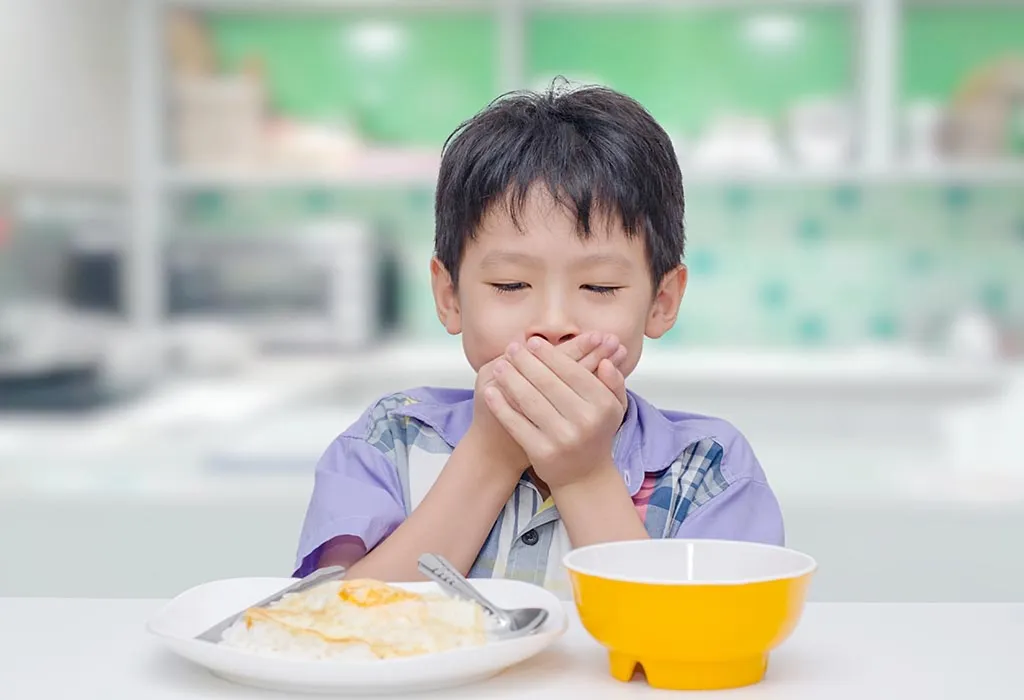
9. Lifelong Dislike for Food
Children may fester long aversions and dislike for food as they grow up.
10. Parental Control on Food Leads to Eating Issues
When parents force-feed their children, it can end up in kids feeling lost and lacking control over their lives. This may lead to low self-esteem issues.
How to Stop Pressuring Kids to Eat?
Force-feeding babies. toddlers or older kids may lead to many physical, emotional and physiological issues. Therefore, it is important to understand why you are force-feeding your kid and look for the trigger that may be causing such behaviour. If you feel your child eats lesser than his sibling, refuses to eat, is more engrossed in playing than eating and various such things, it is very normal. You should maintain your calm and not panic and let your child come and ask for it.
What You Can Do to Make Your Child Eat Properly Without Forcing Him?
Here’s what you can do:
- Eat with your kid
- Have patience when introducing something new
- If the child gets distracted, gain his attention back
- Be patient
FAQs
1. Should I force my child to eat if he is a picky eater?
If your kid is a picky eater, the first thing that you need to establish is the root cause of it. This will help you deal with the situation in a better way. Even if your child is engrossed in something and is missing his meal times, it is best to leave him alone and let him come back to you whenever he feels hungry.
2. How can I inculcate good eating habits in a child?
Apart from being a good role model, letting your child decide his meal times, preferences, and other such factors may help inculcate good eating habits in a child.
3. Can force-feeding impact a child’s social interactions and development?
Yes, force-feeding can also affect a child’s social interactions and development. Mealtimes are not just about eating; they are important social occasions where children learn conversational skills, manners, and the norms of social eating. If a child experiences stress and anxiety around eating due to force-feeding, they may become withdrawn or resistant during social dining situations, such as school lunches or family gatherings. This can hinder their social development and affect their ability to interact comfortably in social settings involving food. Additionally, if a child feels ashamed or embarrassed about their eating habits, it can impact their self-esteem and confidence in social interactions.
This was all about force feeding infants and toddlers and the harmful effects of doing so. It is important to feed your child healthy food, but not at the cost of force-feeding him. Talk to your doctor if your child is struggling with his meals.
References/Resources:
1. Starzomska. M, Smulczyk. M; Behavioral Consequences of Force-feeding (Handbook of Behavior, Food and Nutrition); ResearchGate; https://www.researchgate.net/publication/260184923_Behavioral_Consequences_of_Force-feeding; January 2011
2. Liu. Y, Zhu. X, Huang. L, Jia. Y, Xia. Z; Effects of force-feeding on immunology, digestive function and oxidative stress in the duodenal and jejunal mucosa of Pekin ducks (Animal); Science Direct; https://www.sciencedirect.com/science/article/pii/S1751731119000612
3. Chinawa. J; The Knowledge and Practice of Forced-Feeding among Mothers and Caregivers in Enugu, South East Nigeria; ResearchGate; https://www.researchgate.net/publication/283547078_The_Knowledge_and_Practice_of_Forced-Feeding_among_Mothers_and_Caregivers_in_Enugu_South_East_Nigeria; November 2016
4. Wehrly. S, Bonilla. C, Perez. M, Liew. J; Controlling Parental Feeding Practices and Child Body Composition in Ethnically and Economically Diverse Preschool Children (Appetite); National Library of Medicine; https://www.ncbi.nlm.nih.gov/pmc/articles/PMC3913272/; February 2014
5. Arts-Rodas. D, Benoit. D; Feeding problems in infancy and early childhood: Identification and management (Paediatrics & Child Health); National Library of Medicine; https://www.ncbi.nlm.nih.gov/pmc/articles/PMC2851259/
6. Boucheron. P, Bhopal. S, Verma. D, Roy. R, et. al.; Observed feeding behaviours and effects on child weight and length at 12 months of age: Findings from the SPRING cluster-randomized controlled trial in rural India; PLOS One; https://journals.plos.org/plosone/article?id=10.1371/journal.pone.0237226; August 2020
7. Orlet. F, Lipps. B; Restricting access to palatable foods affects children’s behavioral response, food selection, and intake (The American Journal of Clinical Nutrition); Science Direct; https://www.sciencedirect.com/science/article/pii/S0002916522044367; June 1999
Also Read:
Loss of Appetite in Kids
How to Feed Your Baby With a Syringe?
Independent Eating in Young Children
Know More About Finger Feeding Your Baby
Was This Article Helpful?
Parenting is a huge responsibility, for you as a caregiver, but also for us as a parenting content platform. We understand that and take our responsibility of creating credible content seriously. FirstCry Parenting articles are written and published only after extensive research using factually sound references to deliver quality content that is accurate, validated by experts, and completely reliable. To understand how we go about creating content that is credible, read our editorial policy here.





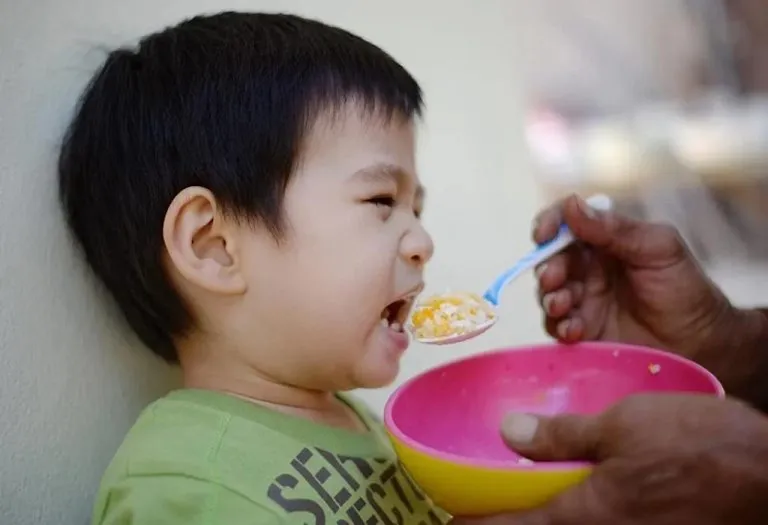










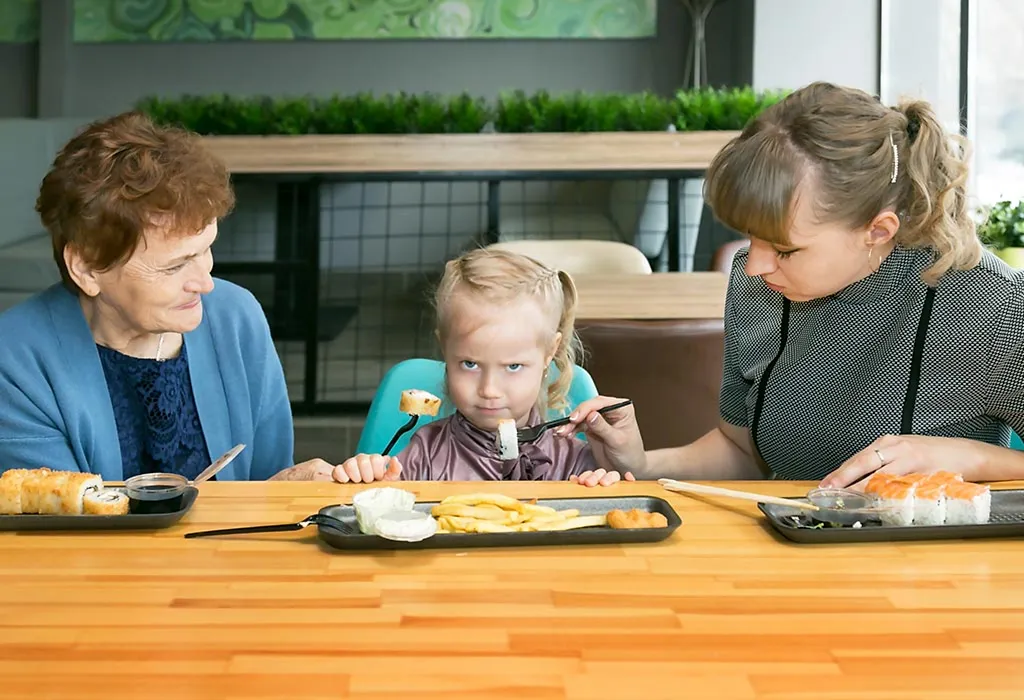
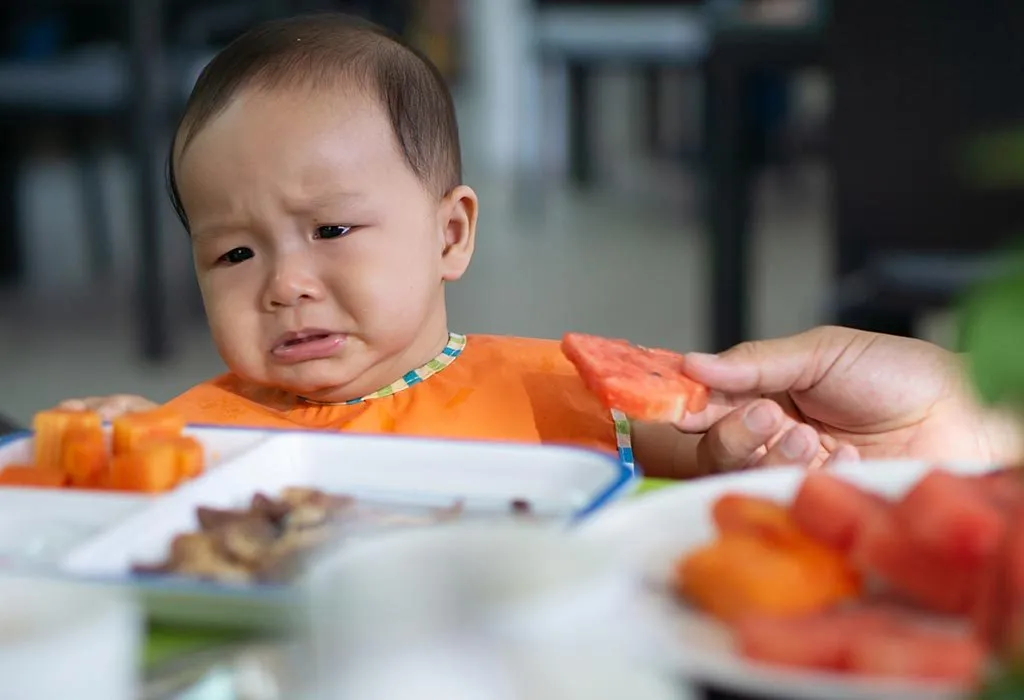




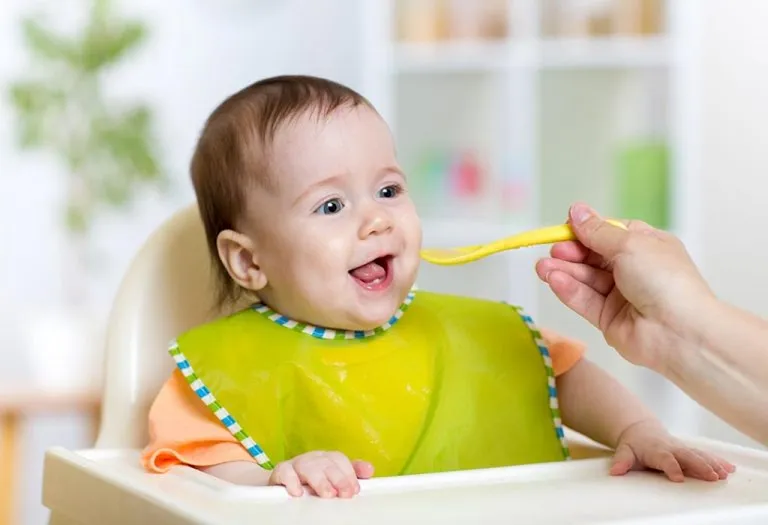



.svg)









